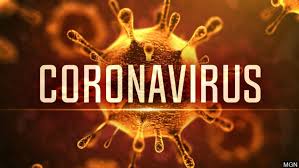
On 19 April 2021 UK Govt updated its COVID-19 Status reconfirming that, after 13 months, COVID19 is STILL NOT a High Consequence Infectious Disease (HCID). The Advisory Committee on Dangerous Pathogens (ACDP) is also of the same opinion.
The UK government website at 22APR21 states:
"As of 19 March 2020, [over a year ago] COVID-19 is no longer considered to be a high consequence infectious disease (HCID) in the UK. There are many diseases which can cause serious illness which are not classified as HCIDs.
The 4 nations public health HCID group made an interim recommendation in January 2020 to classify COVID-19 as an HCID. This was based on consideration of the UK HCID criteria about the virus and the disease with information available during the early stages of the outbreak. Now that more is known about COVID-19, the public health bodies in the UK have reviewed the most up to date information about COVID-19 against the UK HCID criteria. They have determined that several features have now changed; in particular, more information is available about mortality rates (low overall), and there is now greater clinical awareness and a specific and sensitive laboratory test, the availability of which continues to increase.
The Advisory Committee on Dangerous Pathogens (ACDP) is also of the opinion that COVID-19 should no longer be classified as an HCID.
The World Health Organization (WHO) continues to consider COVID-19 as a Public Health Emergency of International Concern (PHEIC), therefore the need to have a national, coordinated response remains and this is being met by the government’s COVID-19 response.
Cases of COVID-19 are no longer managed by HCID treatment centres only. All healthcare workers managing possible and confirmed cases should follow the updated national infection and prevention (IPC) guidance for COVID-19, which supersedes all previous IPC guidance for COVID-19. This guidance includes instructions about different personal protective equipment (PPE) ensembles that are appropriate for different clinical scenarios." (PDF)
WHO 74th World Helath Assembly 24MAY21-01JUN21 Provsional Agenda
- 13.3 Expanding access to effective treatments for cancer and rare and orphan diseases, including medicines, vaccines, medical devices, diagnostics, assistive products, cell- and gene-based therapies and other health technologies; and improving the transparency of markets for medicines, vaccines, and other health products (PDF)
_____
See also:
- Vaccine Dangers Interview Geert Vanden Bossche
- MHRA Vaccine Side Effects Weekly Reports
- Previous COVID19 Change in Infection Designation Update
- Govt General & Mental Health Guidance
- UK Column No Smoke Without Fire series - video commentary on the reactions and figures:
- Part 4 - Lies Damned Lies and Statistics
- Part 3 - Vaccine Adverse Reactions (PDF)
- Part 2 - T Cell Training and Covid 19 Vaccines (PDF)
- Part 1 - Covid 19 and the RiO Gulag (PDF)




Make A Comment
Comments (0)